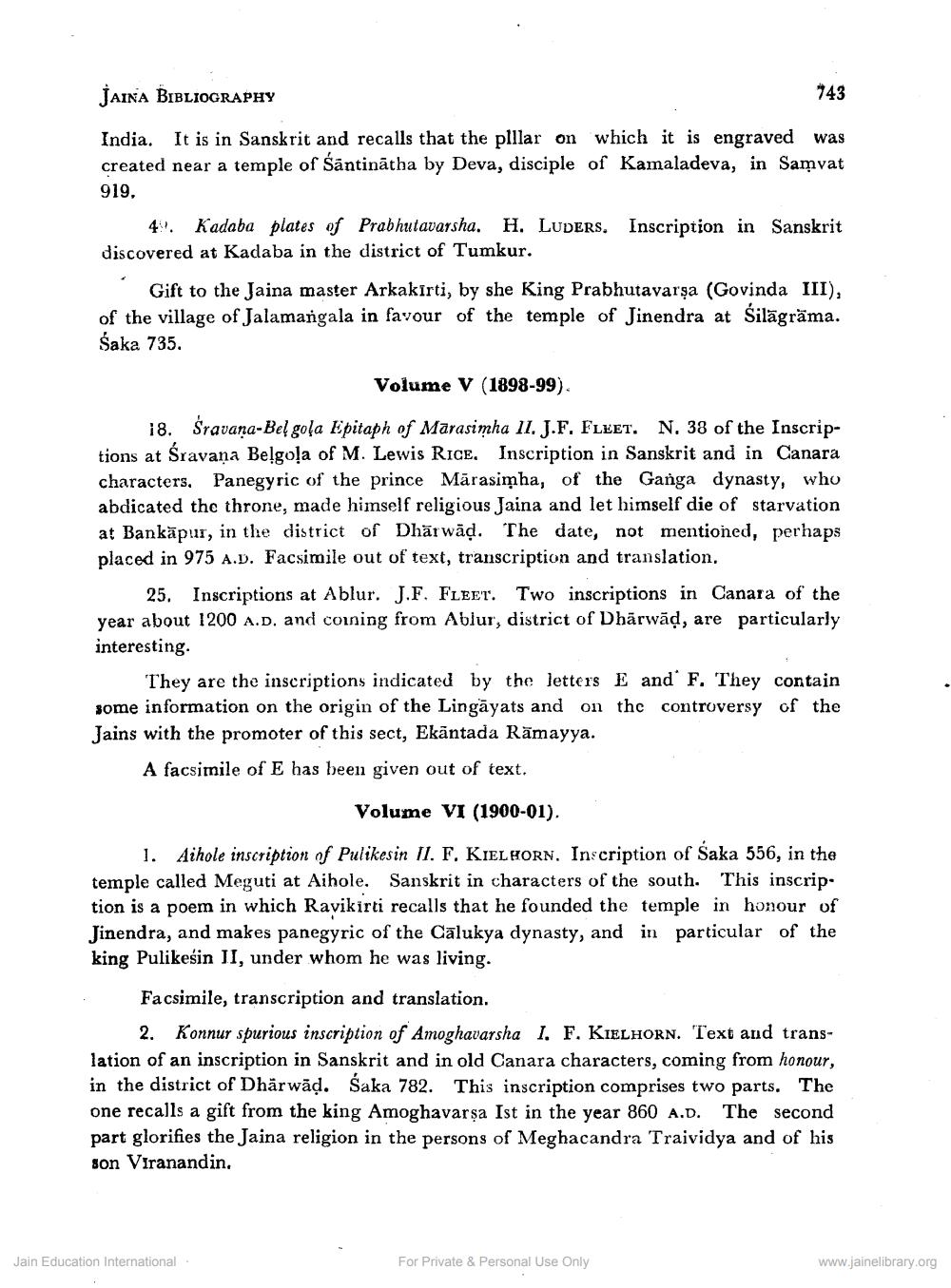________________
JAINA BIBLIOGRAPHY
743
India. It is in Sanskrit and recalls that the plllar on which it is engraved was created near a temple of Sāntinātha by Deva, disciple of Kamaladeva, in Samvat 919,
4. Kadaba plates of Prabhutavarsha. H. LUDERS. Inscription in Sanskrit discovered at Kadaba in the district of Tumkur.
Gift to the Jaina master Arkakīrti, by she King Prabhutavarşa (Govinda III), of the village of Jalamangala in favour of the temple of Jinendra at Silāgräma. Saka 735.
Volume V (1898-99)
18. Sravana-Bel gola Epitaph of Marasimha 11. J.F. FLEET. N. 38 of the Inscriptions at Sravana Belgola of M. Lewis Rice, Inscription in Sanskrit and in Canara characters. Panegyric of the prince Mārasimha, of the Ganga dynasty, who abdicated the throne, made himself religious Jaina and let himself die of starvation at Bankāpur, in the district of Dhārwad. The date, not mentioned, perhaps placed in 975 A.D. Facsimile out of text, transcription and translation.
25. Inscriptions at Ablur. J.F. Fleet. Two inscriptions in Canara of the year about 1200 A.D. and coining from Ablur, district of Dhārwād, are particularly interesting.
They are the inscriptions indicated by the letters E and F. They contain some information on the origin of the Lingāyats and on the controversy of the Jains with the promoter of this sect, Ekāntada Rāmayya.
A facsimile of E has been given out of text.
Volume VI (1900-01).
1. Aihole inscription of Pulikesin II. F. KIEL HORN. Inscription of Saka 556, in the temple called Meguti at Aihole. Sanskrit in characters of the south. This inscrip. tion is a poem in which Ravikirti recalls that he founded the temple in honour of Jinendra, and makes panegyric of the Cālukya dynasty, and in particular of the king Pulikesin II, under whom he was living.
Facsimile, transcription and translation.
2. Konnur spurious inscription of Amoghavarsha I. F. KIELHORN. Text and translation of an inscription in Sanskrit and in old Canara characters, coming from honour, in the district of Dhärwād. Saka 782. This inscription comprises two parts. The one recalls a gift from the king Amoghavarsa Ist in the year 860 A.D. The second part glorifies the Jaina religion in the persons of Meghacandra Traividya and of his son Viranandin,
Jain Education International
For Private & Personal Use Only
www.jainelibrary.org




